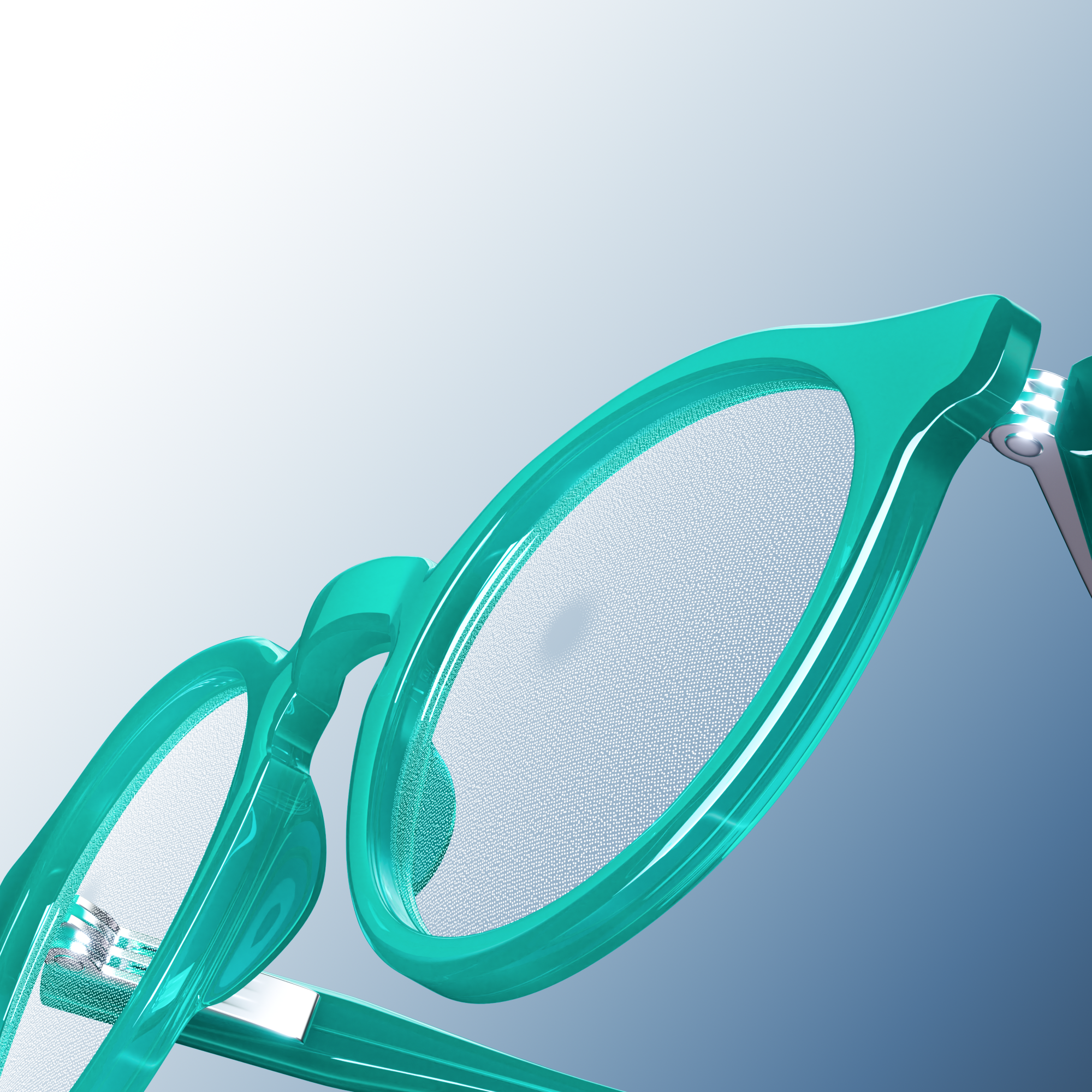New data on myopia lens at ARVO

SightGlass Vision DOT lenses use thousands of micro-dots to softly scatter light to reduce contrast on the retina
SightGlass Vision, a joint venture of CooperCompanies and EssilorLuxottica, has announced positive outcomes of multiple studies evaluating the performance of its Diffusion Optics Technology (DOT) spectacle lenses, which are designed to slow myopia progression in children. All studies are being presented this week at the 2023 ARVO Annual Meeting in New Orleans.
Most prominent is the reporting of 42-month data from the company’s pivotal CYPRESS study extension. Results reinforced the safety and efficacy of DOT spectacle lenses in children aged six to 10 year at the study’s start. The latest investigation re-enrolled 98 participants from the original three-year, double-masked, randomised, multi-site clinical trial to generate six additional months of data. Outcomes again demonstrated statistically significant improvements in axial length (AL) and cycloplegic spherical equivalent refraction (cSER) between the test and control groups, the company reported.
Separate work calculated age-independent myopia AL growth to evaluate DOT spectacle lens efficacy. Physiological AL growth was determined based on age-matched emmetropic eye growth data from the Orinda Longitudinal Study of Myopia, then compared to AL growth observed in the original three-year CYPRESS study. Children in the test lens group showed 0.23 mm (73 per cent, p=0.003) less pathological AL change than the control group (test: 0.08 ± 0.06 mm; control: 0.31 ± 0.05 mm).
“The extensive and rigorous science we are communicating at ARVO 2023 demonstrates the depth of our commitment to advancing myopia control, while also building additional confidence in the efficacy, safety, and overall performance of Diffusion Optics Technology spectacle lenses,” said Andrew Sedgwick, CEO of SightGlass Vision.
SightGlass Vision and its research partners are also displaying several scientific posters at the ARVO meeting. A study from the Centre for Ocular Research & Education shows that DOT spectacle lenses have “no significant effect on accommodative lag after short-term wear”. Work from Indiana University suggests that DOT contrast-reducing micro-dots “do not limit high quality spatial details and good visual performance”, while another Indiana investigation concludes that “wearers are unlikely to notice substantial contrast decreases when looking through the spectacle lens treatment zone”. A SightGlass team also examined the effect of social restrictions during the Covid-19 pandemic on myopia progression in North American children who participated in the CYPRESS study.
Spectacle lenses with SightGlass Vision DOT use thousands of micro-dots to softly scatter light to reduce contrast on the retina, a unique mechanism of action to control myopia progression in children. The technology has been launched in several markets including China, the Netherlands and Israel, as well as through preliminary market trials in other countries.